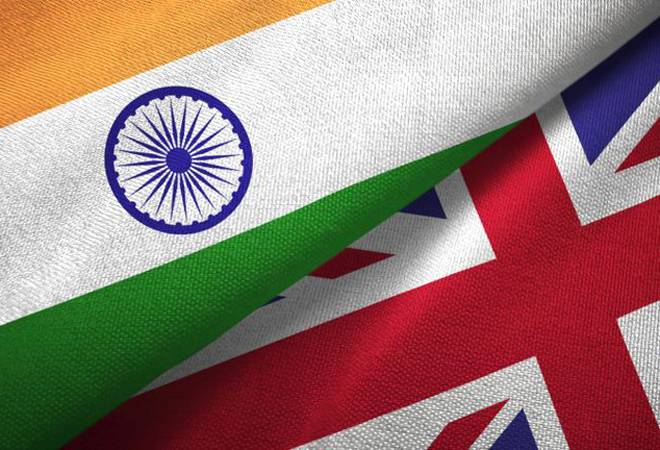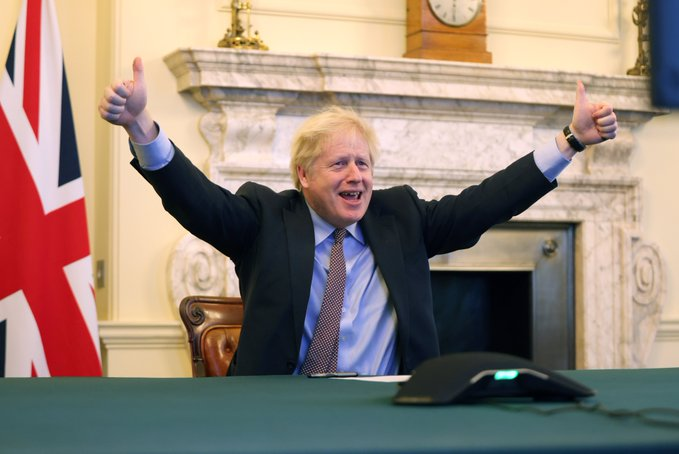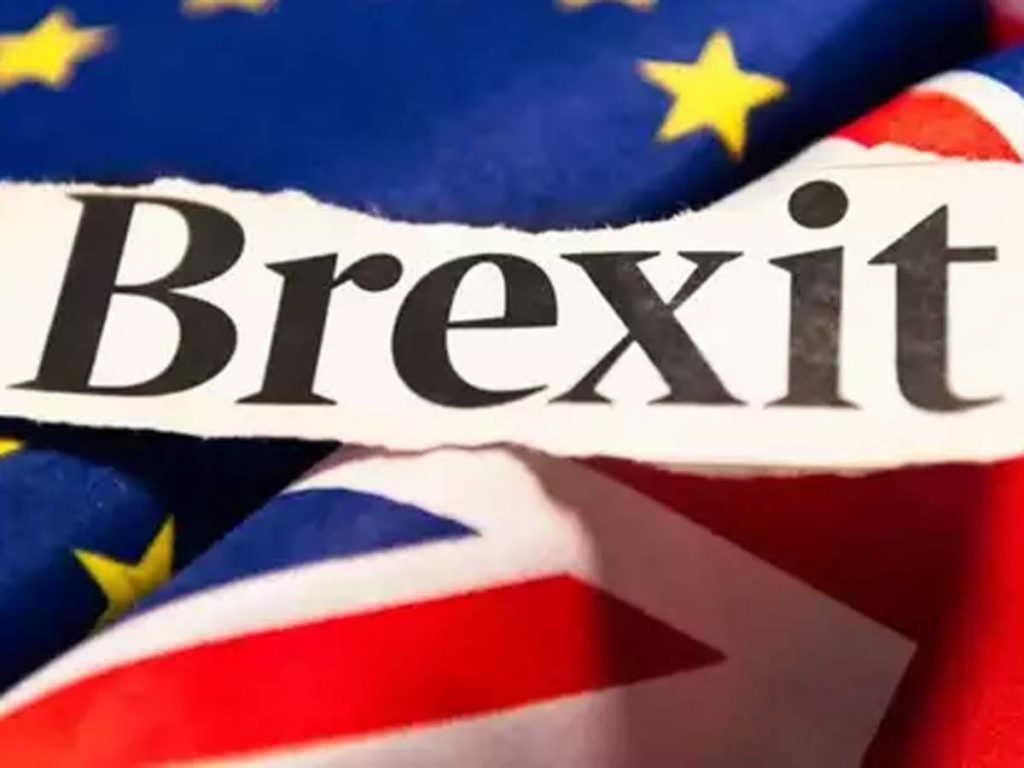- India is slated to become the third largest economy surpassing all European economies in a decade and the new trade deal is sure to change the way India deals with the UK and the EU.
- Brexit might give a boost to trade ties between India and the UK. Britain will now be free to discuss a bilateral trade pact with India.
- With lower pound value, Indian companies may be able to acquire many hi-tech assets. As investors look around the world for safe havens in these turbulent times, India stands out both in terms of stability and of growth.
- Services exports especially in the sectors such as IT, R&D, architecture and financial services, may gain in both the markets particularly in the UK .
- The trade deal may lead to foreign fund outflow and dollar rise. A depreciated Rupee can lead to increase in fuel prices.
- India will need a new FTA with the EU, excluding Britain and this could impact its trade estimates.

The United Kingdom and European Union reached a post-Brexit trade deal on 24 Dec which will come into effect from January 1, 2021. The deal comes after months of strained negotiations between the two sides. The UK formally exited the EU on January 31 this year but a trade agreement was pending for the past 11 months as negotiations were going on. The agreement also averted a much-feared “no-deal” scenario which could have sparked economic chaos and risked major disruption to the flow of goods and medicines between the UK and EU.
The government has said that the deal is good for British businesses as it has agreed on a zero tariff free trade deal which is great news for British families and businesses. The European Commission President Ursula von der Leyen who took part in the negotiations said that the EU had struck a fair and balanced post-Brexit trade deal. (Key points of UK-EU Trade Deal can be read here) https://samvadaworld.com/featured/deal-is-done-the-uk-and-european-union-formalise-zero-tariff-post-brexit-trade-deal-key-points-explained/
The deal between UK and EU will impact the nature of business of other countries of the world with either of the parties. India is slated to become the third largest economy surpassing all European economies in a decade. Hence the Brexit and the new trade deal is sure to change the way India deals with the UK and the EU.
What’s at stake?
India is one of the top investors in the UK. There are about 800 Indian-owned companies in the country employing roughly 110,000 people. (Eg: Jaguar Land Rover is owned by the Tata group). Many of these firms made investments with the wider European market in mind.
The UK accounted for 16% of India’s $53.7-billion exports to the EU in FY20. The EU, including Britain, was the largest export destination for India last fiscal, with a 17% share in the country’s overall outbound shipments. Apart from garments, India ships out gem and jewellery, pharma products, footwear and organic chemicals, among others, to the UK in large volumes. Together, the UK and Europe account for over-a-quarter of the country’s IT exports, worth around $30bn.
The UK is the third-largest source of foreign direct investment in India and India’s largest G20 investor. India is the third-largest source of FDI to the UK in terms of numbers of projects. India invests more in the UK than in the rest of Europe combined, emerging as the UK’s third-largest FDI investor. The key sectors attracting Indian investment include healthcare, agritech, food, and drink.
In November 2015, Prime Minister Modi had said, ”As far as India is concerned, if there is an entry point for us to the EU, that is the UK.” But, the UK is only India’s 12th largest trade partner, well behind other European countries such as Germany and Switzerland. The UK is also among just seven in 25 top countries with which India enjoys a trade surplus.
Positive Impact for India

Brexit might give a boost to trade ties between India and the UK. Britain will now be free to discuss a bilateral trade pact with India. Due to the fall in the value of Pound sterling, those who import from the UK will gain. Indian export companies operating in the UK may also gain. More Indian tourists can afford to visit Britain in the coming days as the currency value has fallen. Further, more Indian students can afford to study in Britain (for higher education) as the fees may seem cheaper.
There are many who think a weakening British currency might be good news. India being more of an importing country than an exporting nation, the overall effect may turn out positive for India (if the dollar doesn’t appreciate much against rupee). With lower pound value, Indian companies may be able to acquire many hi-tech assets. As investors look around the world for safe havens in these turbulent times, India stands out both in terms of stability and of growth.
Britain will need a steady inflow of talented labour, and India fits the bill perfectly due to its English-speaking population. The fall in the prices of commodities like crude, which will help India save a lot on its import bill (every $1 drop in crude prices leads to roughly $1 billion savings in India’s oil import bill), reducing its trade and current account deficits (CAD).
Brexit would weaken global growth and lead to a meaningful decline in commodity prices. This is only going to enhance both the relative and absolute appeal of India. Lower commodity prices will help the macro fundamentals: be it fiscal deficit, current account deficit or inflation, which will give the government more levers to pump up the investment cycle.
India stands to gain from the Brexit deal as services exports from Asia’s third-largest economy are likely to benefit from the curbs on the free movement of professionals between the two markets. Sectors such as IT, R&D, architecture and financial services, may gain in both the markets particularly in the UK.
Negative Impact on India

India will have to adjust to changing world order. There may be foreign fund outflow and dollar rise. Rupee may depreciate because of the double effect of foreign fund outflow and dollar rise. This may increase petrol and diesel prices to an extent. The government then may want to reduce additional excise duty imposed on fuel when it was on a downward trajectory. This may increase fiscal deficit unless revenue increased.
Prices of gold, electronic goods, among others may also increase. Sensex and Nifty may be negatively impact in the short-run when new trade deals are signed. The falling value of the pound could render several existing contracts loss-making.
India will need a new FTA with the EU, excluding Britain and this could impact its trade estimates. India will have to recalibrate its offers to the 27-member bloc for tariff reductions, factoring in the changed realities.
The vote is also bad news for Indian outsourcers. Foreign funds are likely to move out if the world outside thinks that investment in India is risky. India’s Forex (currently a record 363 billion dollars) may diminish, particular if the currency is stored in Euros or Pound (this comes around 20% of total forex). Brexit will have a negative impact on the $108 billion Indian IT sector in the short term.
Many Indian companies are listed on the London Stock Exchange and many have European headquarters in London. Brexit will take away this advantage. Due to fall in the value of Pound sterling, Indian exports to the UK will suffer. Cheaper rupee will make Indian exports, including IT and ITeS, competitive. Indian import companies operating in the UK may also report a loss. Also, note that India is exporting more than what it is importing from Britain.
Indian companies who have based their headquarters either in the UK or the EU to serve both the markets may face some challenges due to restrictions on the movement of professionals.
Conclusion
The Brexit and the trade deal between the UK and EU is sure to impact India, both positively and negatively. It also gives an opportunity to India to recalibrate its outlook of the changing world where no relation or bloc is permanent. New deals will have to be made and old deals discarded in the interest of the nation.
Hence, Prime Minister Narendra Modi’s invitation to his UK counterpart Boris Johnson as the chief guest for the Republic Day could not have come at a better time. Both the countries share several common concerns and challenges that needs to be addressed. Boris Johnson’s visit will be the perfect occasion for both sides to begin preliminary discussions for a trade deal which is in the interest of both the nations.
